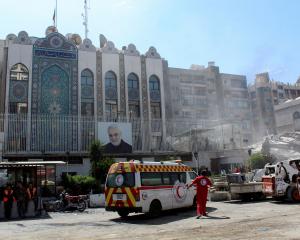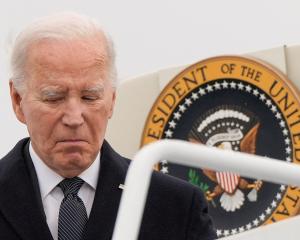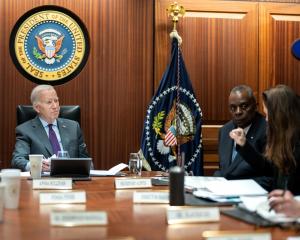That can be quite bad, but it's rarely as bad as the half-formed fears that build up if you don't actually analyse the problem.
Like Islamic State, for example.
It began with the conquest of parts of eastern Syria by an Islamist group called Isis (Islamic State in Iraq and Syria) in 2011-13.
Its founders were almost all Iraqis who had got their start fighting the American occupation of their country.
They were allegedly in Syria to help overthrow Bashar al-Assad's dictatorship, but they actually spent their time conquering territory held by other rebel groups.
Once Isis had a territorial base in eastern Syria, its fighters surged back across the border into Iraq in June 2014 and captured Mosul, Iraq's third-largest city.
First the hopeless Iraqi army and then the supposedly competent Kurdish army crumbled in front of them.
In July, Isis declared the border abolished and proclaimed the foundation of the ''Islamic State'' in the conquered parts of both Syria and Iraq.
A few days later the leader of Isis, Abu Baqr al-Baghdadi, declared in a sermon in Mosul's great mosque of al-Nuri that he is the caliph to whom all Muslims owe obedience.
It was a bold step - there has been no caliph since 1924 - but it had great resonance among those many Muslims who blamed the collapse of the Islamic world's power and prosperity on the neglect of its traditional religious institutions and values.
Since then, Islamic State has conquered no more territory.
Its one big offensive, against the Kurdish enclave of Kobane along the Turkish border, was defeated after thousands of Isis fighters died in the attempt to take it.
Aircraft from the US, other Western countries, and various conservative Arab countries patrol the skies over Islamic State, bombing anything that looks even vaguely military.
Yet, it still scares people to death.
One reason is its sheer ferocity and endlessly inventive cruelty.
It crucifies people, hacks their heads off, burns them alive and posts videos boasting about it all.
It attracts large numbers of recruits from the Sunni Muslims living in the Arab lands now included in Islamic State, but also thousands of eager volunteers from other Muslim countries and from the Muslim diaspora in the West.
Islamic State is now collecting pledges of allegiance from like-minded Islamist fighting groups in other Muslim countries, each of which lends a little more credibility to its claim to be the new caliphate.
In November, Islamist groups in Egypt, Libya, Algeria, Yemen and Saudi Arabia all declared that they acknowledged al-Baghdadi, now calling himself Caliph Ibrahim, as their leader and guide.
Little more has been heard from the Yemeni, Saudi and Algerian groups, but the Egyptian group, Ansar Bayt al-Maqdis, controls parts of the Sinai Peninsula, regularly attacks the Egyptian army, and was officially designated a ''province'' (wilayat) of the Islamic State in November.
Libya, where Islamist groups have been gaining ground in the civil war, was carved into three further ''provinces'' at the same time.
In late January, a former commander of the Pakistani Taliban and 10 other jihadi leaders from Pakistan and Afghanistan also acknowledged al-Baghdadi's authority , and declared that they constituted the new IS ''province'' of Khorasan, taking in those two countries and ''other nearby lands''.
Then, last Saturday, Abubakar Shekau, the leader of the militant group Boko Haram, which controls much of northeastern Nigeria, also pledged allegiance to Islamic State: ''We announce our allegiance to the caliph ... and will hear and obey in times of difficulty and prosperity. We call on Muslims everywhere to pledge allegiance to the caliph.''
It's certainly making progress, but how far can it go?
Probably not much further.
All the new ''provinces'' of Islamic State, like most of the original ones, are in mainly rural areas, often sparsely populated, and with few natural resources (except some oil, in Libya's case).
They are areas that corrupt and autocratic governments, many of them distracted by civil war, can simply abandon for the short term as not vital for their survival.
For Islamic State to seize big metropolitan areas and their resources would require a level of popular support in those areas that is unlikely to emerge.
Big cities are full of relatively sophisticated people who have something to lose, and are unlikely to see Islamic State as an attractive solution for their problems.
Without the big cities and their communications facilities - especially airports and harbours - there can be little effective co-operation between the widely dispersed ''provinces'' of Islamic State.
They will have to go on fighting their own wars with little outside help, and some they will lose.
The broader struggle against Islamist extremism will probably continue for at least a decade, and impose heavy costs on the people of the Middle East.
But ultraradical organisations such as Isis and Boko Haram are likely to break up in bitter theological disputes a lot quicker than that.
• Gwynne Dyer is an independent London journalist.












